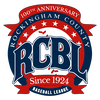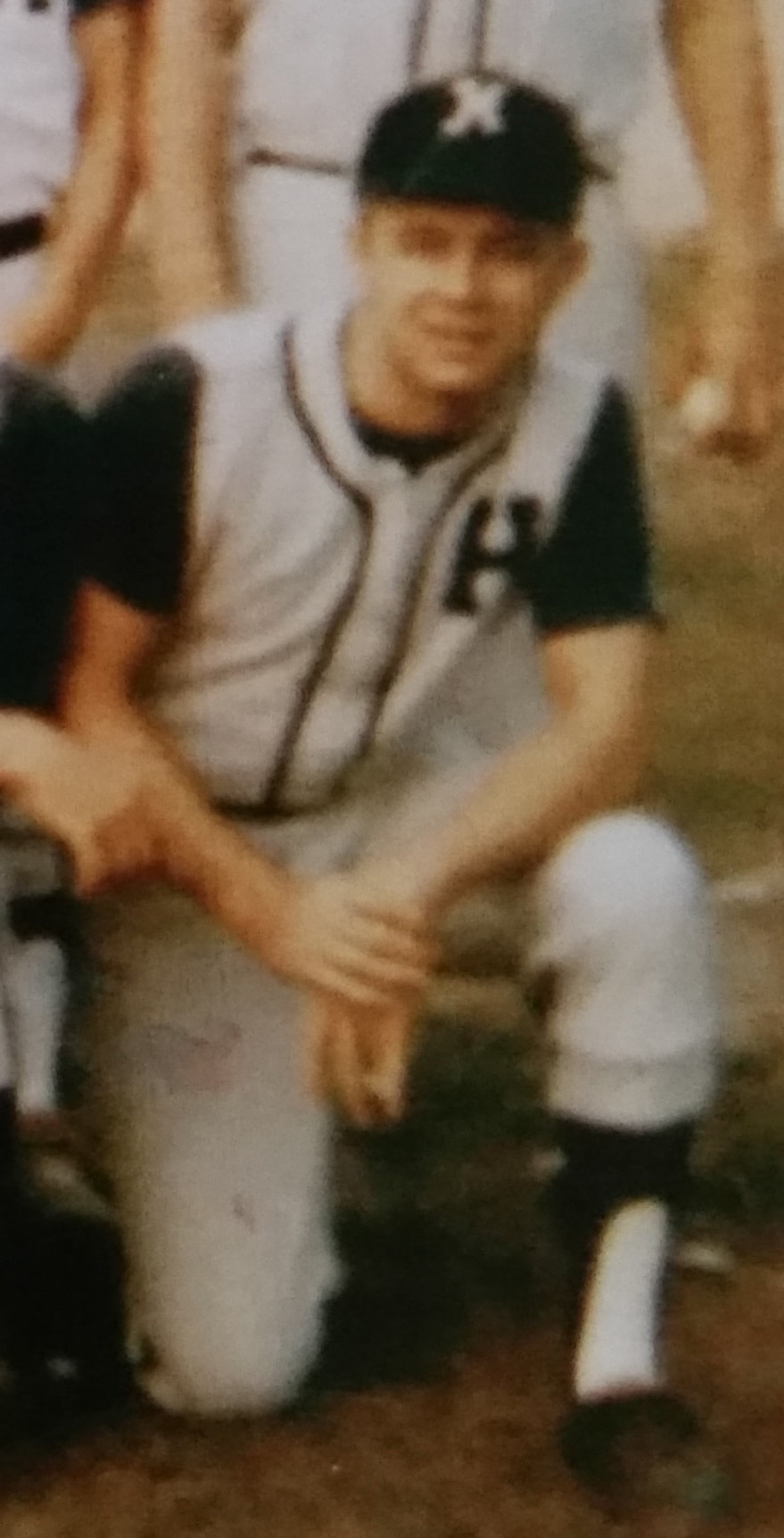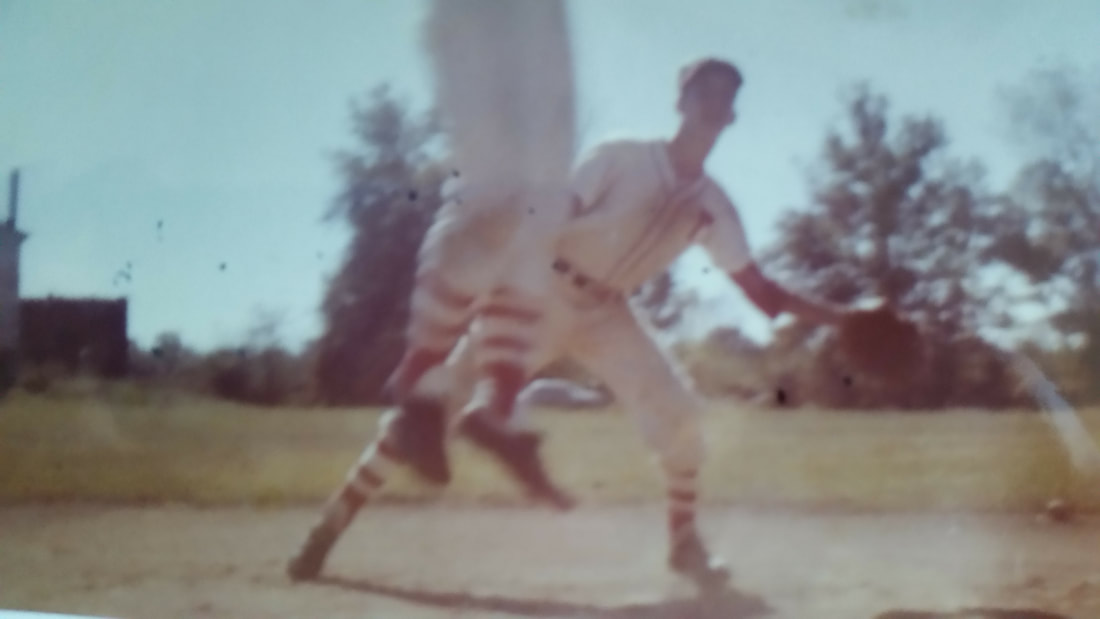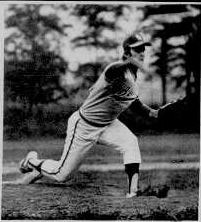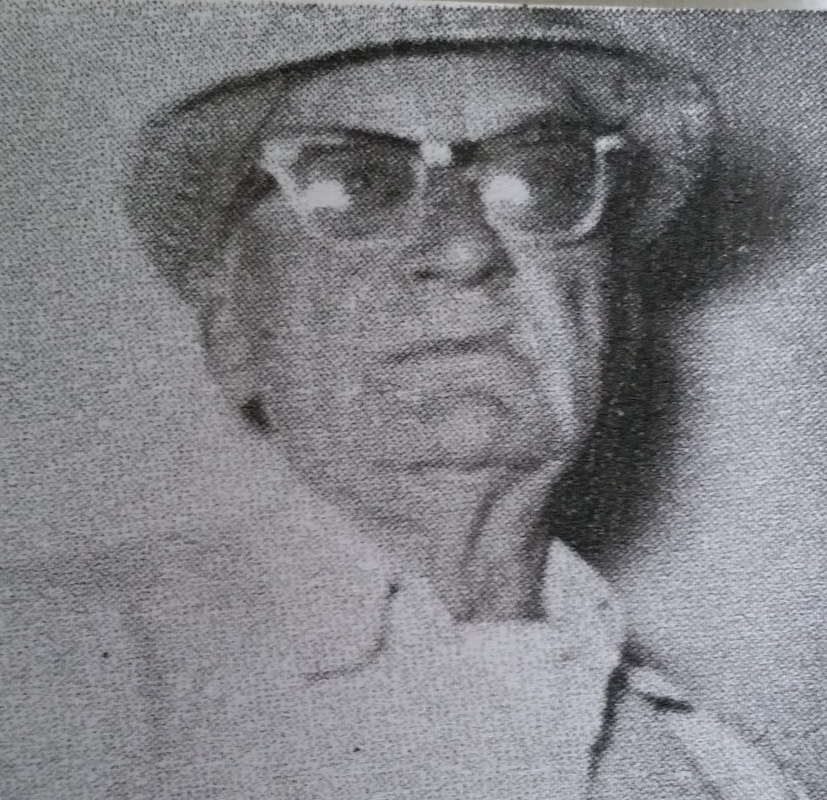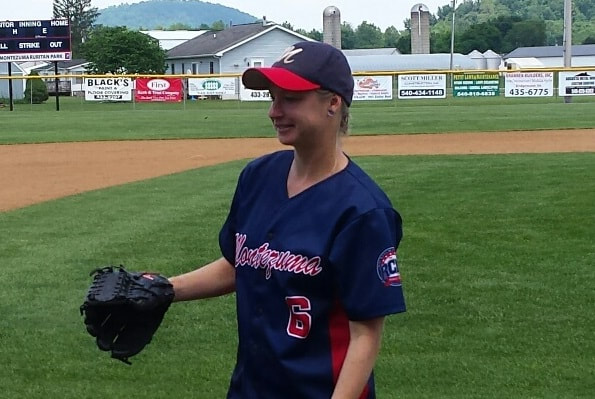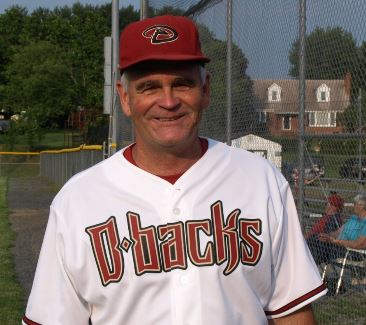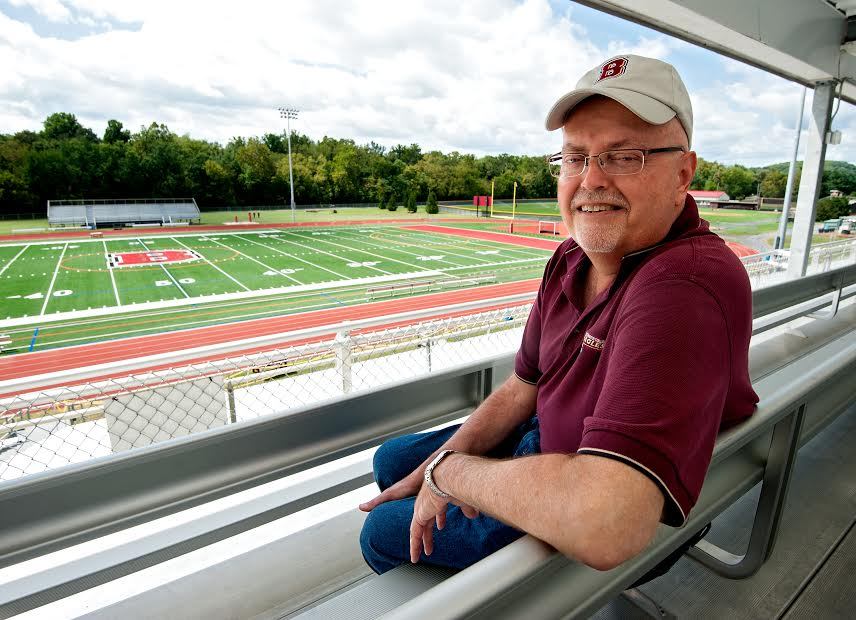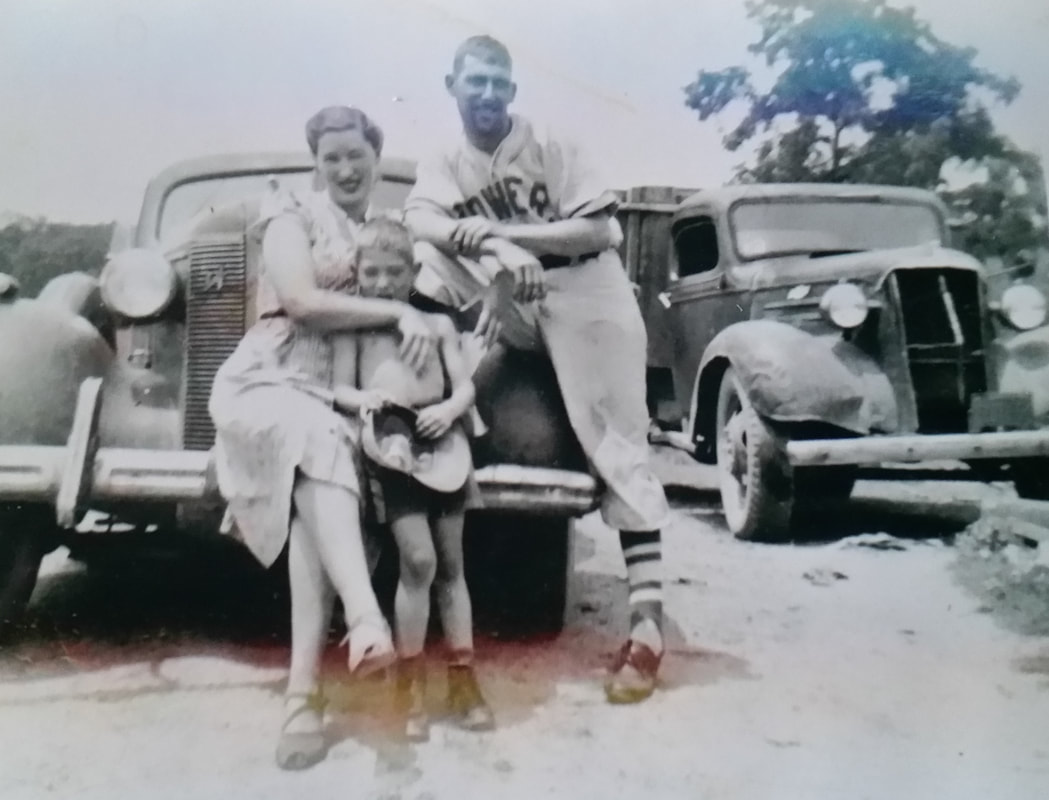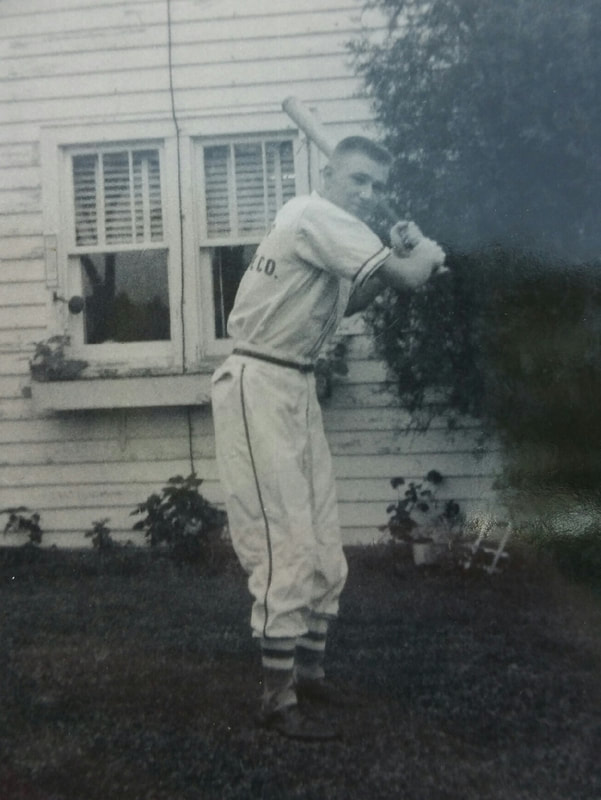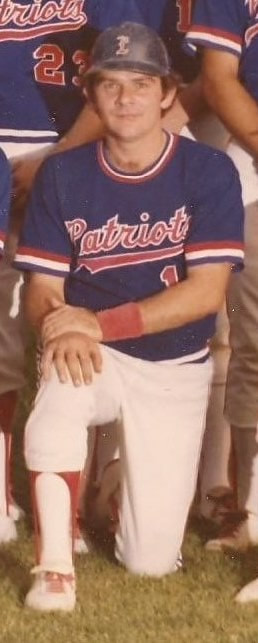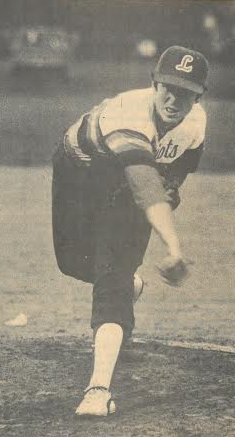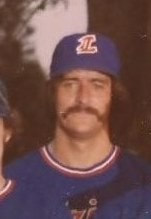RCBL Hall of Fame Class of 2017
Special thanks to Lauren Jefferson (HOF Class of 2017) for researching, writing, and producing player biographies.
Carl Alexander
Carl Alexander was “outstanding defensive infielder” at Harriston during the years of its dominance in the league. His talent out of Waynesboro High School was noted by the Yankees. He was drafted but never played in a game, returning home to begin a long career of baseball and later softball.
He played with the Waynesboro Generals in 1955 in the Valley League and eventually joined a Harriston team in the Augusta County League. This team joined the RCBL in 1963 and eventually won seven straight championships from 1965 to 1971. In the 1965 season, Carl was second in home runs on the team and hit .400. Carl had at least two All Star appearances, one at second base and one in right field. He was remembered by several former opponents as just a good competitor, someone who took the game seriously but still made time for friendly talk on the field and after the game. |
Pablo Cuevas
Pablo Cuevas is the only inductee who brings an international baseball experience to the RCBL, and he is the first, and most likely, only Hispanic ballplayer to be inducted into the hall. Pablo came to Dayton from Cuba as a teenager in 1959 to attend Shenandoah College and Conservatory. The second oldest son, he came to take advantage of post-secondary education and because his parents were concerned about the future of their country, which was in the midst of the Cuban Revolution.
There he met Ray Alexander, whose dad managed a Timberville team in the Twin County League. At a time when he was first learning English, being able to play baseball, and play it well, helped him earn both respect and friendships around the Valley. A shortstop, Pablo played with Timberville for a few years until that league dissolved and then played many years in the RCBL with Twin County, Linville and Keezletown. Baseball took on a new role after Castro took over in Cuba and his parents were unable to support him. Pablo became a political refugee and put down roots in the Valley. Baseball connections helped him find his first job, his second job and his wife, Elaine. His baseball ended in the late 60s, when he became state vice president, and eventually president, of the Jaycees. This led to running for City Council and mayor of Broadway. Pablo retired after 40 years at Riddleberger Construction. He has contributed greatly to the life and culture of the Valley through his philanthropic work, his support of vocational and technical education, and as a district supervisor since 1989. Among other contributions, he was also a Little League baseball coach and more recently, helped the Broadway Little League to complete their indoor batting facility. The facility is in the basement of a community center, which is a good metaphor for how Pablo views the sport of baseball, as an integral part of a community, and his own personal history. |
Larry Erbaugh
Larry Erbaugh was a five-year starter for Clover Hill from 1975-79, when the Bucks were a perennial pennant and championship contender. He earned Most Valuable Pitcher awards in 1976 and in 1979, just one of eight pitchers in the history of the league to earn the honor more than once. His RCBL career came after success at Turner Ashby, three summers on a Staunton American Legion team that won two state championships, five years with the Turks and four years at University of South Carolina. Erbaugh was inducted into the Turner Ashby Hall of Fame in 2008. In his acceptance speech, Erbaugh stated that he was grateful for the opportunity “to continue to play baseball when perhaps your time was passed for athletic competition.”
|
Lawrence E. “Bud” Kibler Jr.
In 1924, 23-year-old Bud appeared on the Bridgewater roster in the new Rockingham County Baseball League. Based on his longevity in the league, you can bet that he had been playing baseball long before that.
The newspaper called him “Bridgewater’s fleet outfield star.” He was good enough that teams fought over him. In 1931, Bud apparently signed with Broadway in the County League and with Staunton in the Augusta County League. Dayton and Mount Crawford also claimed his services. This sparked a nearly six-week dispute which threatened to dissolve the four-team league. He played the ’34 and ’35 seasons with Harrisonburg in the Valley League, leading the league in offensive stats in his early 30s. His brother, Frank, also known as “Monk,” happened to be the shortstop with the worst offensive record. From 1946-56, he managed Bridgewater and played when needed, leading them to a series championship in 1948 and five pennants in 1950 and 1952-55. |
Lauren Jefferson
Lauren Jefferson played two seasons with Montezuma in 2011 and 2012, and in 2012, also played with Shenandoah in the Apple Valley League.
Her journalism experience drew her into becoming a contributor to the annual RCBL Hall of Fame ceremonies. She compiled profiles of all of the inductees in the first six classes, which means she;s written 78 biographies of local baseball players who competed from 1924 until the present. She estimates she’s interviewed close to 200 people and spent about 500 hours researching the RCBL. In 2014 and 2015, she was media information director of the Valley League. Since her Little League days back in California, she has always loved baseball. Opportunities to play are limited for women, so she has spent most of her athletic career as a distance runner and was an area high school and middle school cross country and track coach for 17 years. |
Tinker Kiser
Tinker Kiser was nominated to the Hall of Fame by Bob Wease, and this is particularly fitting since both men have been devoted to the game since they were able to throw a ball. And like Bob Wease, Tinker is one of the few RCBL Hall of Fame inductees who have touched baseball at nearly every level possible: as players and managers, involved in ballfield construction, team administration, and outside the league, in coaching and mentoring young players.
Tinker went to Northeast Oklahoma A & M, then walked on at Virginia Tech. Because of injuries, he didn’t actually pitch until he was a fifth-year senior and there was one roster spot available and 36 players vying for it. At Tech that year, he eventually earned the nickname “Big O,” for the zeros across the scoreboard when he pitched. He saved 13 games, a single-season record for more than 20 years and he 1976 ERA of 0.73 ranks second-best for a season in the program’s history. After Tech, he was with the Texas Rangers and Toronto Blue Jays before coming home to Stuarts Draft. In the RCBL, Tinker pitched for Grottoes, Harrisonburg and Linville. He retired at 34, but came back to pitch his final innings at the age of 46 with son Trip as his catcher. Tinker began coaching almost immediately after returning to Stuarts Draft. He has nearly 35 years of coaching experience at the youth and high school levels and owns the Home Run Club, a training facility. In 2005, he took over the Fishersville Rangers franchise from Lynn Wease and renamed them the Stuarts Draft Diamondbacks. At about the same time, he and his father and a group of local partners were working to reclaim an old Little League field in the center of Stuarts Draft. The Diamond Club Stadium is the home field for six local organizations and schools. The Diamondbacks have contributed to one of the league’s great modern rivalries; Stuarts Draft reached the championship series seven consecutive years from 2008-2014, finishing runner-up the first four years before winning three consecutive championships in 2012, 2013 and 2014. |
Bill Phipps
For 15 years, Bill Phipps was the “Voice of the Bucks,” announcing home games at Clover Hill in several championship seasons. He came to Clover Hill through Steve Lough and stayed through the management of Mike Martin and most recently, Chris Cofer. Known as “Coach Bill,” he was a station program manager, talk radio personality and sports announcer for the past 24 years. Bill was also the “Voice of the Eagles” for Bridgewater College, as well as for several local high schools.
Bill was a huge part of the Bucks’ family, which supported him through his two-year battle with brain cancer and mourned his death in August 2016. Karl Magenhofer used to come to Bucks games sometimes to spend time with Bill in the press box, and he captures Bill’s impact in the community really well when he says, “There will be people who will be the announcer for the Bucks, but I can’t imagine anyone else being the ‘Voice of the Bucks.’” |
Riley Rau
Riley Rau played 18 seasons in the RCBL from 1963-1980, and all but one of those seasons was with Twin County. He was a regular All Star selection for Twin County. A fond memory is their 1972 championship win.
He spent one season about mid-way through his career with Luray, when Twin County didn’t have a field to play on. That’s a total of 18 seasons just in the RCBL. Add five more seasons playing baseball— three in the old Twin County League and two in the Valley League with New Market, as well as a few seasons where he was a ringer for teams in the Mountaineer League. Baseball was a constant in his life for many years. Riley says if there was a ball game, he was usually in it. He said, “I didn’t need too much encouragement to play.” From newspaper clippings and what others have said about his athletic talents, it’s clear that he was an important part of the Twin County team’s longevity in the league. Donnie Fulk, who nominated Riley for the Hall, says he is “one of the best shortstops in the league, a tremendous clutch hitter and just an all-around good ballplayer.” |
Roscoe Sheffer
Roscoe Sheffer played for Towers in the Augusta County League and for Grottoes in the Valley League, before coming with Towers to the RCBL. He was a regular All-Star selection, the starting pitcher in 1954 against the Valley All-Stars. His final game was in 1959.
According to one former opponent, he was “hands down one of the best of that time. Best player I ever played against.” Buckshot Harrison said Roscoe Sheffer would make you look silly at the plate. “But you couldn’t be embarrassed because he was something. He gave everyone a hard time.” There were also a couple of players who hated playing Towers and would take themselves out of the lineup if Roscoe was pitching. Roscoe also had two nicknames that tell a bit about his character: he was known as “Goat” or “Blockhead” for his stubbornness and independence. One time, he pitched the first game of a doubleheader and then complained his arm was sore. A couple of his teammates went to the store to get a bottle of coke and a can of aspirin. Roscoe tossed the entire can into his mouth. One version of the story was that he chewed the aspirin. Then he finished off the bottle of Coke and won the next game. The second story involves his oldest son Gene, who was down in the dugout at Clover Hill and overheard two men talking about how they were going to give Roscoe a nip between every inning. Well, they did, but Roscoe got better and better and threw harder and harder and won that game too. |
Wilson Showalter
Wilson Showalter began his baseball career at Turner Ashby High School where he helped win five games in a 10-0 season preceding a District 10 Championship. From 1959 to 1976, he was a regular starter at Clover Hill, and a regular All-Star.
Donnie Fulk names Wilson Showalter among the best left-handed pitchers in the Hall, which is high praise when considering the others are on the caliber of former pro pitchers Harry Harlow and Sparky Simmons. Donnie also said, “There may have been pitchers who threw harder, but no one was smarter.” Wilson has passed on his love of baseball to his son and grandsons. Son Brian pitched for Turner Ashby and played for Clover Hill. Brian says that his dad was his pitching coach through those years. Brian then went on to become a coach of both his sons and many local boys. He’s also an umpire. Wilson has also indirectly helped to contribute to the continued success of the high school and Bridgewater College programs. Jordan pitched at Bridgewater College and for Clover Hill. Jesse was a member of Turner Ashby’s 2017 state championship team. |
Cricket Simmons
When I met with Cricket Simmons at his house, I asked him what he wanted to go by in the Hall of Fame literature, and he looked at me like I was crazy. He said, I’ve always been Cricket. I’m in the phone book that way because nobody knows by another name.”
The story is that as a little boy, he was out in the fields playing and his brother noticed that he was so short he would jump up like a Cricket to see who was calling. I love that the brother’s nickname was Sparky and he was always known by that for the rest of his life too. Sparky and Cricket. We’ve got some great nicknames in this league. Goat, Buck, Polly, Ozzie, Wally, Pidge, Tat … Cricket was first a shortstop at Linville and then a catcher, and during our interview, after we’d covered the usual stuff, I usually get in more specific details about playing, he got out of the chair and hopped down in a crouch and started showing me how how he and Sparky used to communicate through certain signs. Then he hopped back up and the knees popped but I think he could probably catch a game or two, so if you have a roster spot available… Cricket and his brother Sparky, who is already in the hall and pitched in the minor leagues, were easily the one of the greatest pitcher-catcher combinations in the RCBL. The duo played together from 1966 to 1978, contributing to a core of hard-nosed competitors who won four straight pennants and two consecutive championships. Cricket played on eight All-Star teams, earning MVP All-Star game honors in ’69 and ‘71. He was in the running for the batting title a number of those years and also was near the top, if not at the top, of steals. |
Jodie Wampler
Jodie Wampler went to Turner Ashby High School and landed a Division I scholarship at George Washington University. I believe he was the second player after his cousin Larry Erbaugh to play at a Division I school. That’s kind of a neat piece of trivia considering that many players in TA’s program have gone on to play that level of baseball.
Jodie was a standout pitcher at GWU. He played five seasons in the Valley League and one season in the Cape Cod League, helping three teams to championship seasons. At GWU, his ERA for one season was 1.20, with a career record of 23-8 on teams which won a total of 62 games during those years. He is still in the top five of several GWU stats categories, including being ranked number one in ERA (1.20) and strikeouts in a game (18 vs. George Mason). Jodie played one year with Twin County and then for Linville from 1978-81. Linville won the pennant and championship for three straight years from 1979-81. Jodie was an assistant coach with Linville in 2000, and managed at Bridgewater for the next two seasons. He also coached Little League and high school teams, as well as at James Madison University and in the Valley League. Jodie has been honored for his baseball career three times before. He was voted onto GWU’s All-Century team as a pitcher in 2000 and entered the university’s Hall of Fame that year. In 2001, he was selected for Turner Ashby High School’s Hall of Fame (2001). |
Barnes Yelverton
Our final inductee hails from a tiny town in Wilson County, North Carolina, where he played basketball and baseball. There were 19 in his graduating class. “At the end of the basketball season, he says the team would just go put on baseball uniforms.
Many inductees were multi-sport athletes, and interestingly, most preferred basketball. Barnes Yelverton did too, but he was better at baseball so that’s where he took his talents. Barnes was a four-year starter at University of North Carolina Wilmington, where his record was 23-7. In 1970, he played with Waynesboro in the Valley League, a summer in which he met his future wife. He was a first round winter draft pick of the Chicago White Sox, but an injury landed him back in the Shenandoah Valley. Unfortunately Tommy John surgery hadn’t been invented yet. He came to Linville through the Simmons brothers, and was an outstanding pitcher and hitter for Linville from 1974-81, spanning the years when the Patriots won four consecutive pennants and two championships. He was Most Valuable Pitcher in 1975 and shared the MVP award with Fred Hill in 1977. That season, he hit .436, with a slugging average of .700. Earning both awards is a rare feat in league history. |
